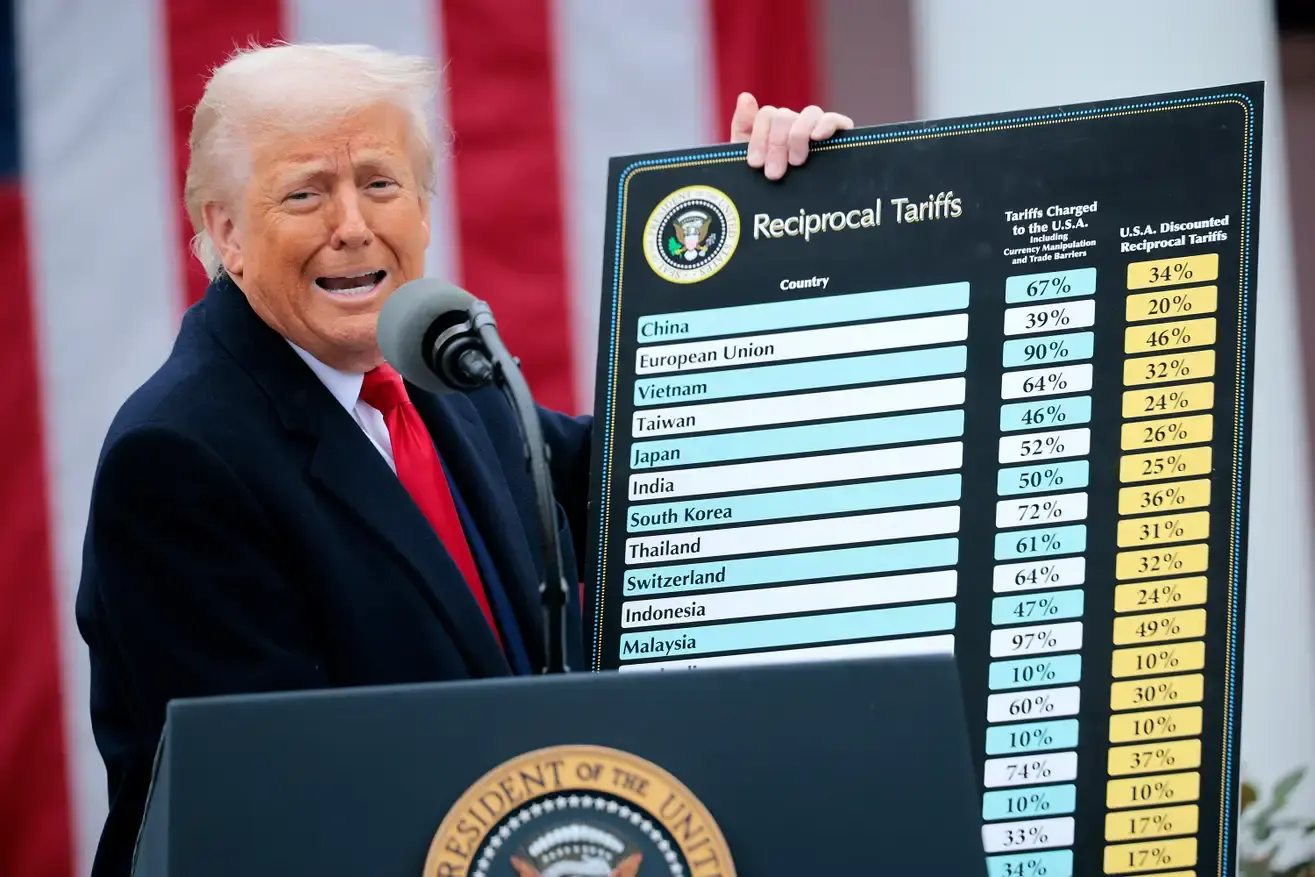
Trump's new tariffs would be laughed away by a high school economic teacher, analyst says
Bubbles
April 3, 2025
President Donald Trump’s administration has introduced a new round of tariffs, dubbed “reciprocal tariffs,” which have raised eyebrows both domestically and abroad. The idea behind these tariffs is to adjust the duty rates based on a country’s trade deficit with the United States and other trade barriers. However, the method used to calculate these tariffs has drawn widespread criticism for being overly simplistic—something even a high school student could likely improve upon.
At the heart of the plan is a baseline tariff of 10% that will apply to almost all countries beginning Saturday at 12:01 a.m. ET. In addition to this, on April 9, reciprocal levies will be enacted. According to Trump, these tariffs are intended to create fairer trade conditions by taking into account “tariff and non-tariff barriers” along with other forms of what he calls cheating. In practice, however, the administration’s calculation appears to simply divide a country’s trade deficit by the total value of its imports from the U.S. This means that the larger a country’s nominal trade deficit is, the higher the tariff imposed will be.
Economists are alarmed by these changes. Goldman Sachs estimates that when all existing tariffs (including those on steel and aluminum) are factored in, the effective U.S. tariff rate could reach as high as 18.8%, while Morgan Stanley’s calculations suggest it might be even higher—around 22%. Such significant increases in tariffs could drive up import prices by approximately 5%, which would not only affect consumer costs in the United States but could also trigger a broader confidence crisis in the dollar.
The impact of these measures has not been limited to economic calculations. Financial markets reacted strongly, with major U.S. stock indices falling sharply—S&P 500 Futures dropped by 213 points (3.7%), while Dow Jones and Nasdaq Futures also suffered significant losses.
Internationally, the response has been swift. Countries like Mexico and Canada are already preparing their own countermeasures, and China, which faces an average tariff rate of 65% under the new rules, has vowed to retaliate. European leaders have similarly condemned the tariffs and are working on their responses. In an effort to de-escalate tensions, Commerce Secretary Howard Lutnick mentioned ongoing negotiations with major trade partners, although he was quick to dismiss the idea of granting exemptions to any country.
Critics argue that the current strategy could backfire. Many fear that by targeting specific trade imbalances in such a blunt manner, the U.S. risks igniting a trade war reminiscent of the Smoot-Hawley era in the 1930s—a time when protectionist measures contributed to the worsening of the Great Depression. Others, including industry experts and the International Chamber of Commerce, warn that these tariffs represent a watershed moment in American trade policy, posing significant risks not just to the U.S. economy, but to the global market as well.
While the Trump administration claims that these new tariffs will help level the playing field and foster fairer trade, many view them as poorly calculated and potentially damaging. The simplified method of determining tariff rates has already drawn criticism for its lack of nuance, and the prospect of retaliatory actions from major trade partners only adds to the uncertainty. As negotiations continue, the true impact of these policies on American industry and the global economy remains to be seen.
Comments
You need to be logged in to comment
No comments yet. Be the first to comment!
Need a website?
Then contact us for professional web development services.
Table of Contents
Share this article
More from the blog

Microsoft’s August 2025 Windows Update Is Breaking Streaming and Raising SSD Fears
Meta Description: Microsoft’s August 2025 Windows update (KB5063878 / KB5063709) is causing major problems for streamers and sparking SSD concerns. Here’s what went wrong, Microsoft’s slow response, an...

Microsoft Zero-Day Bug Exploit: How It Happened and What You Need to Do
Imagine waking up to the news that hackers have a secret key to your company’s data. That’s exactly what happened in July 2025 when a zero-day bug in Microsoft SharePoint was discovered to be under act...

Dembele, Yamal or Salah? Breaking Down the Bookies’ Picks for Ballon d’Or 2025
The Ballon d’Or trophy stands as the pinnacle of individual achievement in football – the gleaming prize that will be awarded on September 22, 2025. After a season of drama (Paris Saint-Germain clinch...